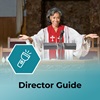"Have we forgotten how it felt to be lost?"
That was the question I began asking myself 18 months ago. I grew up in the church and now I am a pastor at a church. I have become a little "non-emotional" about really reaching the lost. Oh, don't get me wrong. I would say I love the lost and that our church is all about reaching the lost but "what are we doing?" was the burning question searing my soul.
We have had small groups of some kind or another in our church for 30 years. We have always valued community. However, in the last year we have taken our ministry up a notch. In fact, we nearly doubled our number of groups in less than a year. We moved from our fairly stagnate number of 52 groups to 100 groups!
How did we do it? Besides becoming radically sold on the multiplying leadership principle we began a whole new type of group.
We called these groups "Face to Face Groups." These are unique in that they are small groups of 4-6 people who come together because of common professions, hobbies, interests, etc. These groups typically meet at the workplace, a restaurant or other safe common ground. Face to Face groups generally meet for 30-50 minutes a week, because of schedules, to study God's Word and to pray.
Our passion statement read: We pray to reach our community for Christ as we build relationships with those in our sphere of influence. We will do that by providing a safe place for unbelievers/seekers to explore this Jesus we love so much.
Our hope was to get out into the world with the good news of Jesus. Our small groups in church had done a wonderful job of ministering to our church family and now we wanted to bring Jesus to our world.
We began 18 Face to Face Groups last September. We now have groups in schools, office buildings all over town and numerous restaurants. We have shared the gospel with those who have never been interested in "church." And some of those people have finally started coming to worship services. A bonus to these groups is that we have had the opportunity to draw some of our own people both to ministry and participation who have never gotten involved in our regular groups. Their evening schedules or marital conflict (the other spouse is not a believer) never allowed them to get involved.
How did we set these groups up?
Basically I looked for people who were comfortable in their "Christian skin." In other words, I was looking for leaders who were not embarrassed by their beliefs, who were somewhat outgoing and yet not offensive about their walk and those who were ready to shake the status quo. I invited them personally to this ministry. I quoted one of my favorite Barna statements and promised to give them ideas about how to begin and what materials to use.
"Doing more of what we're already doing won't take us to the next level. Doing more of the same, but doing it better, won't get us there, either. We need to integrate new strategies, new tactics and a whole new level of dependence on God in order to climb to a higher plane of ministry impact." —Barna
Our people jumped on board! We have had an exciting year. God has done some miraculous things as we have effectively shown the face of Jesus to many in our community. Although our church supports world missions extensively, we have been reminded that the field of our community is white with harvest. And we are the workers.
THE "ONE RULE" GUIDELINES
Who should come and how do we get them there?
One rule: Anyone and everyone should be welcome to attend.
Begin with a core… friend, prayer partner, like minded in Christ if possible.
First, begin by personally inviting a few people… those who have shown some kind of interest in God, your beliefs or the church, etc.
Secondly, if you choose, you may publicize widely. Fliers, announcements in a newsletter, note to all employees or team members, etc.
When should we have these groups?
One rule: When it works best for you and those you'd like to invite.
Workplace: Before work, on the lunch hour, or after work.
Hobbies or sports: Before you work on your hobby or game. Or after or while you are taking a break.
Where should we meet?
One rule: Where it is convenient for you and those you'd like to invite.
- Workplace: A lounge, a nearby restaurant or someone's office. Safe and neutral.
- Hobbies or sports: Have your group meet where you'd naturally meet to hone your craft or perfect your skills.
What content should we study?
One rule: Something that centers on God via a look at the Bible.
- Your word is like a lamp for my feet and a light for my path. - Psalm 119:105
- Learning your words gives wisdom and understanding for the foolish. - Psalm 109:130
- God's word is alive and working and is sharper than a double-edged sword. It cuts all the way into us, where the soul and the spirit are joined… it judges the thoughts and feelings in our hearts. - Hebrews 4:12
- Book of the Bible: John
- Devotional book
- Ask a couple simple questions
- What jumps out at you in this passage?
- What is the promise, command or challenge of this passage?
- If you really believed what this passage has to say how would it change your life?
- How will you live differently today because of what we have studied?
SAMPLE LESSON: What might our format look like?
- Barrier Breaker
- Study time
- Prayer
DOS AND DON'TS OF FACE TO FACE GROUPS
Don't:- Ask people to read out loud.
- Require people to pray out loud.
- Put someone on the spot to answer a question.
- Allow one person to talk incessantly.
- Answer Bible study questions first.
- Do everything yourself.
- Get caught up in theological differences.
- Review your mission/passion statement every week.
- Start on time and end on time.
- Make sure everyone knows each other.
- Be sure everyone knows where and when you will meet each week.
- Let your group know that if they don't have their Bible it is no big deal.
- Make contact with your group members during the week to follow up on what was discussed or issues that were not addressed.
- write a note
- leave a voice mail
- make a phone call
- Practice being transparent.
- Look to the Bible to be the group's guide and answer book.
- Be creative.
- Be flexible.
- Be teachable.
- Pray.
- Prepare.
- Have fun.
TYPES OF FACE TO FACE GROUPS
Small groups of professionals that meet during their work day for 30-50 minutes- Face to Face with the Great Physician (Doctors, nurses, etc.)
- Face to Face with the Master Teacher (Teachers, aides, etc.)
- Face to Face with the Perfect Advocate (Lawyers/Clerks, etc.)
- Face to Face with the Generous Provider (Accountants, financial advisors, etc.)
- Face to Face with the Master Builder (Carpenters, plumbers, etc.)
- Face to Face with the Ultimate Servant (Service types of jobs/Target, Office Depot, etc.)
- Face to Face with the Author of Life (Writers)
- Face to Face with the Waiting Father (Parents of wayward children)
- Face to Face with the Compassionate Healer (Cancer patients/survivors, etc.)
- Face to Face with the Listening Father (Childcare workers.)








